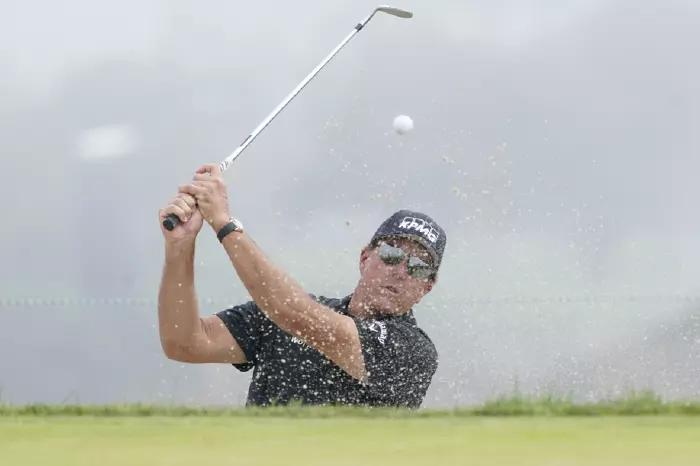Phil Mickelson’s US Open quest: A journey fuelled by dreaming, thinking, and over-thinking

Last month the 50-year-old landed his sixth Major Championship victory, but the title he desires more than any other has remained tantalisingly out of reach his entire career.
Best bet
The Californian has won three Masters titles, two PGA Championships, and he even conquered the British linksland to claim one Open Championship triumph in 2013.
Six times he has been a runner-up. Six times he's banged his head against a door that refuses to open. Six times his heart has been broken.
In 1999 he was leading with three holes to play; in 2002 he was the only man in the field to shoot level-par (unfortunately Tiger Woods was alone in bettering it); he was tied for the lead with two holes to play in 2004, but made double bogey at 17; on the final hole at Winged Foot in 2006 destiny called him, but his drive went to the tented village instead; another Sunday back nine lead came to nothing in 2009; and four years later a 54-hole lead fizzled away.
Mickelson has never been afraid of such perils and earned his PGA Championship win because of it.
In addition to his flexible mind, we will also come to miss Mickelson's astute observations and he began this week's return to Torrey Pines with a few thoughts about one of the key issues: how will be course play in comparison with January's annual Farmers Insurance Open?
That's another thing about Mickelson: he gets things wrong. The Farmers has been played in January, with one exception, since 2010.
"With the fairways being contoured the way they are, and being firm now, they're going to be more difficult to hit. You've got to shape it into the fairways.
Mickelson has landed 10 top 10 finishes in 29 US Open starts and also has seven top 10s in 22 starts since 2000 at Torrey Pines: he's 11/4 end the week as top lefty with PlanetSportBet.
Naturally, he had plenty to say ahead the big week. Here's the best of the rest.
On coming home
On the changes to the course from when he was young
On how course renovator Rees Jones re-shaped the bunkering
On believing he could win the PGA Championship
On posting this thought on Twitter
I’ve failed many times in my life and career and because of this I’ve learned a lot. Instead of feeling defeated countless times, I’ve used it as fuel to drive me to work harder. So today, join me in accepting our failures. Let’s use them to motivate us to work even harder.
— Phil Mickelson (@PhilMickelson) May 11, 2021